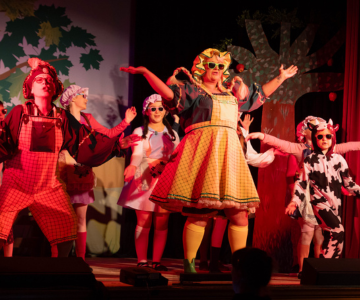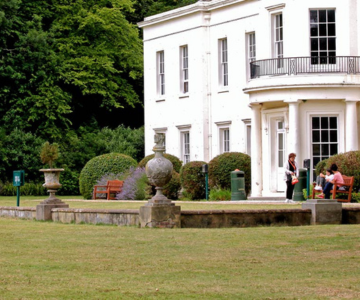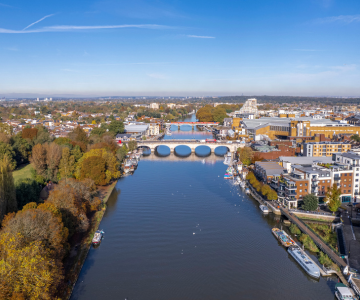
‘It’s behind you!’: A Guide to Christmas Pantomime in the UK
It’s officially festive season!
Paschalis Angelopoulos
Every culture around the world is different, and coming to a country you haven’t visited before or that has a very different culture to your own can be very daunting. One of the most difficult things to grasp can be the etiquette of a culture very different to your own, especially knowing how not to be perceived as impolite when talking to people. When you visit one of our summer centres, you’ll get to meet other students from all over the world, all having grown up in different cultures, and having different views of what ‘polite’ is. So, when you’re talking to your new friends in English, following the English rules of etiquette is a good way to make sure you’re polite to each other. Here are a few tips about being polite in English to get you started.
Firstly, saying ‘please’ and ‘thank you’ is considered very important in English culture. When you ask someone for something, you should always say ‘please’, and when they have done something for you or given you something, you should say ‘thank you’. Often, after you have thanked someone for something, they will say ‘you’re welcome’, which is also considered polite. In some languages and cultures it is common to say ‘please’ when giving someone something, however in English this doesn’t really make sense, hence we use ‘you’re welcome’ after being thanked instead. ‘Excuse me’ is another common phrase in English, which is usually used as polite way of getting someone’s attention. For example, this is a very useful phrase for when you’re on a busy train and someone is in your way; when you say ‘excuse me’, they will be aware that you would like them to move.


As important as using the word ‘please’ when asking for something is to actually ask for it rather than demand it. In some cultures it is common, for example, in a restaurant when ordering food, to say, ‘Give me the chicken.’ In English, however, asking for things like this would seem very rude. Instead, you should say, ‘Can I have the chicken, please?’, so you’re asking for something rather than demanding it.
Another frequent word you’ll hear in English is ‘sorry’. Obviously, this is mostly used as an apology, however is also useful if you don’t hear someone or fully understand something that they have said. You can also use ‘excuse me?’, or ‘pardon me?’ here, which will prompt the other person to repeat what they said.
Finally, something considered quite rude in England is being blunt. This is replying to someone with a very short answer, for example; ‘Would you like some tea?’ ‘No.’ This could be considered offensive, so an answer like this can easily be softened by saying, ‘No, thank you,’ instead. Equally, if someone said, ‘Would you like to come for dinner later?’, just answering ‘no’ would be considered rude, and even ‘no, thank you’ could be taken offensively. It is common in English to answer a question like this with a reason for not going, (true or not, although of course being honest is usually best). Instead, you could say something like, ‘I’m afraid I’m busy later, but thank you for the invitation’.

We hope these tips will help you feel more comfortable when speaking English, but remember, even though it may seem that the English are a bit over the top with politeness, we are also a multi-cultural country and very understanding of foreign cultures, so don’t worry if you do forget to say please or thank you sometimes!

It’s officially festive season!

This week, we’re introducing our Summer Centre in Eastbourne!

The Old Smoke.
We use technology on our website to personalize content, customize and measure advertising, and analyze website traffic. By clicking OK, you agree to the use of these technologies in their entirety.
Learn more in our Privacy Policy.